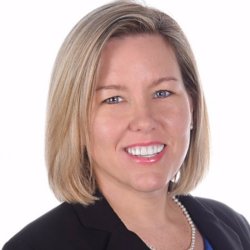Learning required to unlock Tax Reform opportunities
By Gary Hunt, CAE, OSCPA Communications Director
The Tax Cuts and Jobs Act is so complex it defies understanding – even by those who wrote it. But Cari Weston, CPA, MST, CGMA, director of tax practice & ethics for the AICPA, said it is worth it for CPAs to try.
 “They should realize that this bill isn’t a bad thing,” she said. “It is isn’t going to harm them. They can handle this correctly, and if they handle it well, it will be an opportunity.”
“They should realize that this bill isn’t a bad thing,” she said. “It is isn’t going to harm them. They can handle this correctly, and if they handle it well, it will be an opportunity.”
Passed nearly a year ago, the Tax Cuts and Jobs Act – or simply “Tax Reform” – made several significant changes to the individual income tax, including reforms to itemized deductions and the alternative minimum tax, an expanded standard deduction and child tax credit and lower marginal tax rates across brackets.
Weston said initially the complexity and the ambiguity of the bill along with a general lack of guidance created concern in the business community.
“In the first eight or nine months after it passed we could ask two of the top tax experts in the country, ‘What do you think this means?’ and get completely different answers,” she said. “So, if the people whose jobs are to sit and research tax law and who have read this law inside and out feel this way, it’s understandable that others would not have answers.”
One point of confusion early on was on the deductibility of business meals. That effort led to a clarification in October from the IRS.
“We held meetings with the staffers who actually drafted the bill, and said, ‘Was it your intention that you can no longer deduct business meals?’ And they said, ‘No,’” Weston said. “People in the profession don‘t know these private conversations are going on. All they want to know is, is it deductible or isn’t it?
“But that’s just one piece of this tax law, and that’s not the most complicated piece by far.”
Weston will discuss the bill Dec. 10 as a keynote speaker at OSCPA’s annual MEGA Tax Conference in Columbus. She’ll cover what has been learned about the bill since it passed, what’s changed since the election and the impact on the accounting profession.
Weston said the AICPA continues to issue comment letters to the IRS and Treasury, consulting with members and “creating resources at a volume we’ve never had before.” She said as a general practice, CPAs should never do work they do not know how to do, so education is critical.
“The biggest thing is they have to be technically competent,” she said. “This isn’t simple. They’ve got to go get those tax updates. But then once they do, they can still get into gray areas.”
“When something is not clear the best thing you can do is come up with a reasonable solution, document it and then do it all the time until you are told otherwise.”
She said on Dec. 10 she will discuss what legislators were trying to accomplish with the law and how it’s working out so far.
“I’ll talk about the impact on the profession, what we expect to happen – or more likely not happen – by the end of the year, what I think CPAs should be looking for, how I think they should be handling that ambiguity and where they can go to get more resources.”
Learn more:
MEGA Tax Conference
Dec. 10-11 | Columbus
